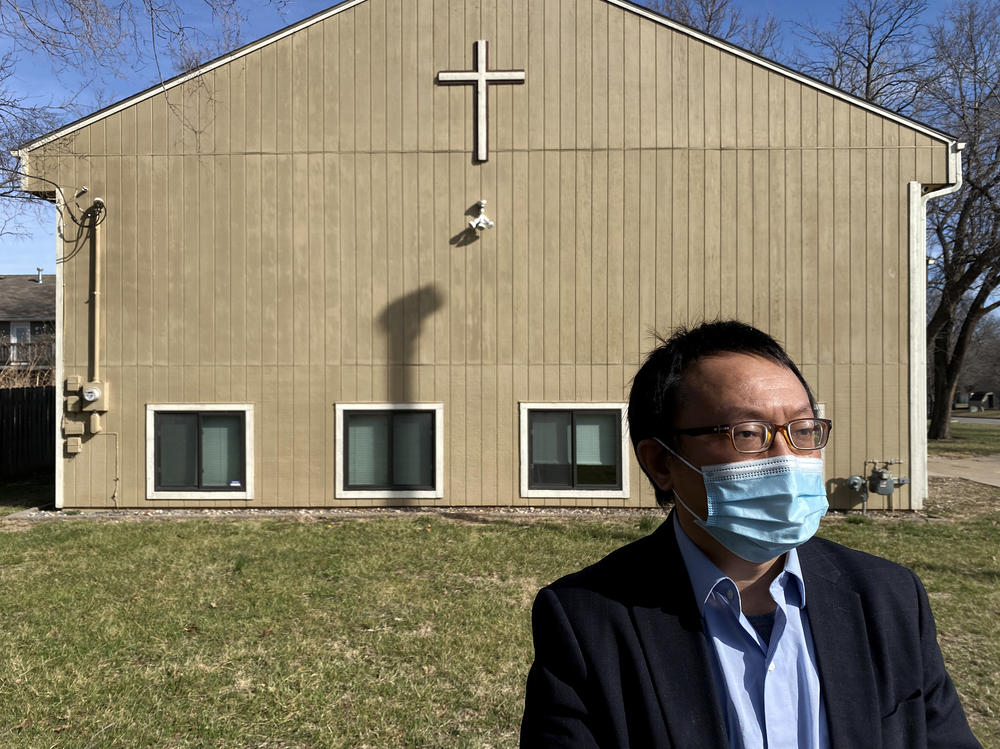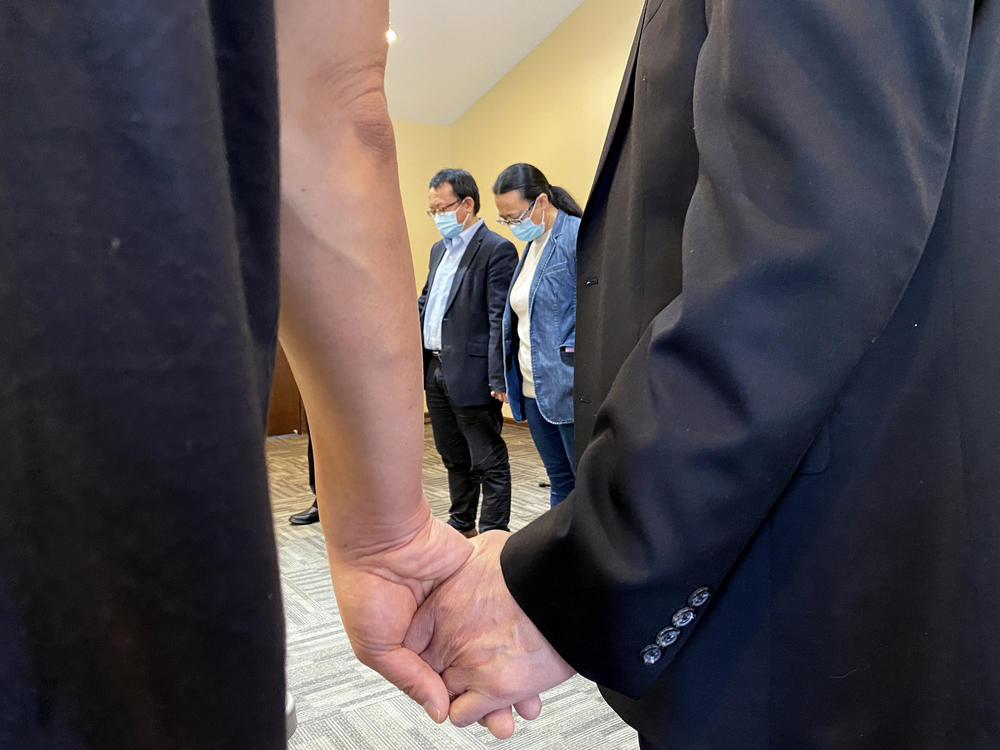Section Branding
Header Content
A jury finds a Kansas scholar guilty of fraud and hiding ties to China
Primary Content
A federal jury in Kansas City has found chemistry professor Feng "Franklin" Tao guilty on four counts of fraud and making false statements, charges leveled against him under a Trump-era program to root out Chinese spies.
The jury also found Tao not guilty of four related counts. After the mixed verdict, the judge declined to set a sentencing date and instead asked the defense and prosecution for a series of further briefs.
According to Tao's lead attorney, Peter Zeidenberg, Judge Julie Robinson said she saw "significant issues" with the government's evidence.
"While we are deeply disappointed with the jury's verdict, we believe it was so clearly against the weight of the evidence we are convinced that it will not stand," Zeidenberg said in a statement.
Prosecutors alleged that Tao concealed work with a Chinese university and an affiliation with a Chinese government-run talent program in a scheme to defraud the University of Kansas and the government.
Tao was arrested in 2019, just months after the Department of Justice launched the "China Initiative" under then-Attorney General Jeff Sessions to crack down on trade secret theft and economic espionage. The program was discontinued in February.
Tao was suspended from his role as an associate professor of chemical and petroleum engineering at the University of Kansas in Lawrence, was barred from entering campus and was forced to wear a tracking device on his ankle.
The government said Tao broke the law by not disclosing work he was doing for a Chinese university on conflict-of-interest forms. Prosecutors argued that he defrauded the university and federal agencies that provided grants for his research.
But his defense team said Tao never formally accepted the job offer at China's Fuzhou University, was never paid, and did not violate rules about disclosure that were in place at the time.
"Given that the victim agencies all said they were fully satisfied with the work Dr. Tao did on their grants, we do not believe the conviction can possibly stand, as they received the benefit of their bargain," Zeidenberg said.
A series of failures
Other high-profile China Initiative cases have foundered in recent months.
This past September, University of Tennessee professor Anming Hu was acquitted by a federal judge. In January, the government dropped its case against Massachusetts Institute of Technology professor Gang Chen, who was being prosecuted on charges similar to Tao's.
In February, the DOJ ended the China Initiative under pressure from critics who highlighted its high rate of failed prosecutions and argued that the program fueled racial bias and fear.
In a December report, the MIT Technology Review identified 77 China Initiative cases and over 150 defendants, the vast majority of which had Chinese heritage. Only a quarter of the cases actually involved espionage charges, it found, and appeared to be an increasing focus on research integrity cases — including Tao's.
Scholars say the China Initiative had a chilling effect on academia.
Ann Chih Lin, an Associate Professor of Public Policy at the University of Michigan, conducted a survey across five U.S. universities. It found that nearly three-quarters of Chinese-American researchers didn't feel safe in America, or felt uncertain about whether they'd be safe here in the future — many because of government investigations.
A fourth of those polled had considered avoiding federal grant applications altogether — a move could undermine ambitious research projects.
Copyright 2022 NPR. To see more, visit https://www.npr.org.


